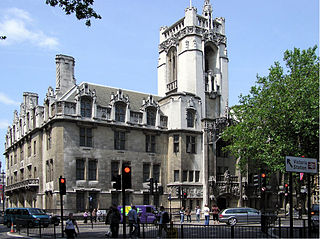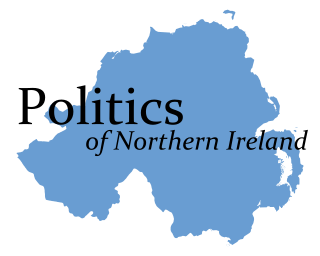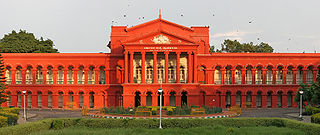See also
| This disambiguation page lists articles associated with the title Court of Criminal Appeal. If an internal link led you here, you may wish to change the link to point directly to the intended article. |
Court of Criminal Appeal may refer to:
| This disambiguation page lists articles associated with the title Court of Criminal Appeal. If an internal link led you here, you may wish to change the link to point directly to the intended article. |

An appellate court, commonly called an appeals court, court of appeals, appeal court, court of second instance or second instance court, is any court of law that is empowered to hear an appeal of a trial court or other lower tribunal. In most jurisdictions, the court system is divided into at least three levels: the trial court, which initially hears cases and reviews evidence and testimony to determine the facts of the case; at least one intermediate appellate court; and a supreme court which primarily reviews the decisions of the intermediate courts. A jurisdiction's supreme court is that jurisdiction's highest appellate court. Appellate courts nationwide can operate under varying rules.
Double jeopardy, non bis in idem or ne bis in idem is a procedural defence that prevents an accused person from being tried again on the same charges following a valid acquittal or conviction in the same jurisdiction.
A summary offence is a crime in some common law jurisdictions that can be proceeded against summarily, without the right to a jury trial and/or indictment.

A judge is a person who presides over court proceedings, either alone or as a part of a panel of judges. The powers, functions, method of appointment, discipline, and training of judges vary widely across different jurisdictions. The judge is supposed to conduct the trial impartially and, typically, in an open court. The judge hears all the witnesses and any other evidence presented by the barristers or solicitors of the case, assesses the credibility and arguments of the parties, and then issues a ruling on the matter at hand based on their interpretation of the law and their own personal judgment. In some jurisdictions, the judge's powers may be shared with a jury. In inquisitorial systems of criminal investigation, a judge might also be an examining magistrate. He makes sure that law and order is followed in the court.
In the United States, a state court has jurisdiction over disputes with some connection to a U.S. state. State courts handle the vast majority of civil and criminal cases in the United States; the much smaller in case load and personnel, United States federal courts, handle different types of cases.

The United Kingdom has four legal systems, each of which derives from a particular geographical area for a variety of historical reasons: English law, Scots law, Northern Ireland law, and, since 2007, purely Welsh law. However, unlike the other three, Welsh law is not a separate legal system per se, merely the primary and secondary legislation generated by the Welsh Parliament, interpreted in accordance with the doctrines of English law and not impacting upon English common law. There is a substantial overlap between these three legal systems and the three legal jurisdictions of the United Kingdom: England and Wales, Scotland, and Northern Ireland. Each legal system defaults to its jurisdiction, each of whose courts further that law through jurisprudence. Choice of which jurisdiction’s law to use is possible in private law: for example a company in Edinburgh, Scotland and a company in Belfast, Northern Ireland are free to contract in English law. This is not so in public law, where there are set rules of procedure in each jurisdiction. Overarching these systems is the law of the United Kingdom, also known as United Kingdom law. UK law arises from laws applying to the United Kingdom and/or its citizens as a whole, most obviously constitutional law, but also other areas, for instance tax law.

While the House of Lords of the United Kingdom is the upper chamber of Parliament and has government ministers, it for many centuries had a judicial function. It functioned as a court of first instance for the trials of peers, for impeachments, and as a court of last resort in the United Kingdom and prior, the Kingdom of England.

A county court is a court based in or with a jurisdiction covering one or more counties, which are administrative divisions within a country, not to be confused with the medieval system of county courts held by the high sheriff of each county.
The Courts of England and Wales, supported administratively by Her Majesty's Courts and Tribunals Service, are the civil and criminal courts responsible for the administration of justice in England and Wales.

The Lord Chief Justice of England and Wales is the Head of the Judiciary of England and Wales and the President of the Courts of England and Wales.
Circuit courts are court systems in several common law jurisdictions. The core concept of circuit courts requires judges to travel to different locales to ensure wide visibility and understanding of cases in a region. More generally, some modern circuit courts may also refer to a court that merely holds trials for cases of multiple locations in some rotation.
The Supreme Court of Ireland is the highest judicial authority in Ireland. It is a court of final appeal and exercises, in conjunction with the Court of Appeal and the High Court, judicial review over Acts of the Oireachtas. The Supreme Court also has appellate jurisdiction to ensure compliance with the Constitution of Ireland by governmental bodies and private citizens. It sits in the Four Courts in Dublin.

The Judge Advocate General's Corps is the branch or specialty of a military concerned with military justice and military law. Officers serving in a JAG Corps are typically called judge advocates. Only the chief attorney within each branch is referred to as the Judge Advocate General; however, individual JAG Corps officers are colloquially known as JAGs.

District courts are a category of courts which exists in several nations, some call them "small case court" usually as the lowest level of the hierarchy. These include:
The High Court of Ireland is a court which deals at first instance with the most serious and important civil and criminal cases. When sitting as a criminal court it is called the Central Criminal Court and sits with judge and jury. It also acts as a court of appeal for civil cases in the Circuit Court. It also has the power to determine whether or not a law is constitutional, and of judicial review over acts of the government and other public bodies.

The courts of Northern Ireland are the civil and criminal courts responsible for the administration of justice in Northern Ireland: they are constituted and governed by Northern Ireland law.

The supreme court is the highest court within the hierarchy of courts in many legal jurisdictions. Other descriptions for such courts include court of last resort, apex court, and highcourt of appeal. Broadly speaking, the decisions of a supreme court are not subject to further review by any other court. Supreme courts typically function primarily as appellate courts, hearing appeals from decisions of lower trial courts, or from intermediate-level appellate courts.

The judiciary of the United Kingdom are the separate judiciaries of the three legal systems in England and Wales, Northern Ireland and Scotland. However, the judges of the Supreme Court of the United Kingdom, the Special Immigration Appeals Commission, Employment Tribunals, Employment Appeal Tribunal and the UK tribunals system do have a United Kingdom–wide jurisdiction. In employment law, Employment tribunals and the Employment Appeal Tribunal have jurisdiction in the whole of Great Britain.

In law, an appeal is the process in which cases are reviewed by a higher authority, where parties request a formal change to an official decision. Appeals function both as a process for error correction as well as a process of clarifying and interpreting law. Although appellate courts have existed for thousands of years, common law countries did not incorporate an affirmative right to appeal into their jurisprudence until the 19th century.

Microsoft Corp. v. United States, known on appeal to the U.S. Supreme Court as United States v. Microsoft Corp., 584 U.S. ___, 138 S. Ct. 1186 (2018), was a data privacy case involving the extraterritoriality of law enforcement seeking electronic data under the 1986 Stored Communications Act, Title II of the Electronic Communications Privacy Act of 1986 (ECPA), in light of modern computing and Internet technologies such as data centers and cloud storage.